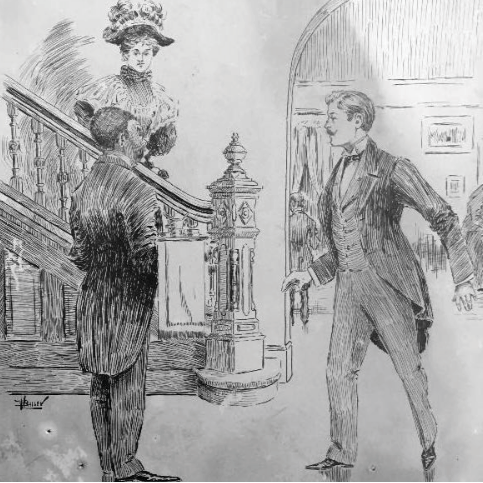By Rick Geffken

Photo courtesy Jackie Morgan-Stackhouse
FREEHOLD – On Thursday, Dec. 19 at the Monmouth County Historical Association, the cultural impact of domestic servants working in Freehold during the 20th century will be the subject of a talk by Walter Greason, Ph.D, chair of the educational leadership department at Monmouth University.
Drawing from themes in his 2010 book, “The Path to Freedom, Black Families in New Jersey,” as well as his personal family history in Freehold, the distinguished scholar will explore the lives and contributions of “the brave families of New Jersey who made a difference in their communities and across the country.”
Greason is the author of six books, lectures frequently here and abroad, and is the founding president of Red Bank’s T. Thomas Fortune Foundation. He recently spoke with us about his research.
How common was it for domestic servants to work in Monmouth County households during the 20th century?
Very common. My review of early 20th century census records revealed that 75 percent of the African-American women in Monmouth County were employed as domestic servants – laundresses, maids, cooks, the kinds of jobs associated with housework today. These women were hired at very low rates of pay, around $2 to $3 per week in the 1920s. They often worked for multiple households.
Was domestic service an option for minorities only? If so, was it a legacy of enslavement?
This wasn’t a direct result of slavery, but domestic service jobs in places like Freehold were better than sharecropping in the southern states. At the people had no capacity for time, it was thought these other kinds of labor.
Was being a domestic servant a career choice or was it a matter of economic survival?
Family survival. Before 1930, African-American men worked as stage coach drivers, chauffeurs and train porters. In Freehold, they did yard work, sometimes walking 25 miles in a day from house to house.
Where did most of Monmouth County’s domestic servants come from? Were they local people or migrants from other parts of the country?
Prior to the Great Migration (1916 through the 1960s) from the rural south to northern states, many African Americans worked their way up and down the coast following crop harvests in New Jersey and into New England. Eventually, after they moved here permanently, African Americans contributed to the growth of cities like Long Branch and Asbury Park where they supported the tourist industry.
Did any domestic servants in Freehold or other local towns succeed in other pursuits?
Many did, as did their descendants. My mother’s family came from New Bern, North Carolina to Freehold in 1923. They helped build the African-American community in the borough.
The event will take place at the MCHA’s headquarters, 70 Court St., Freehold, beginning at 6 p.m. Tickets for the lecture are $5. Visitors can combine a visit to the MCHA Museum and admission to the lecture for $20. Details and ticket reservations (recommended) can be found at monmouthhistory.org or by calling the MCHA at 732-462-1466.














